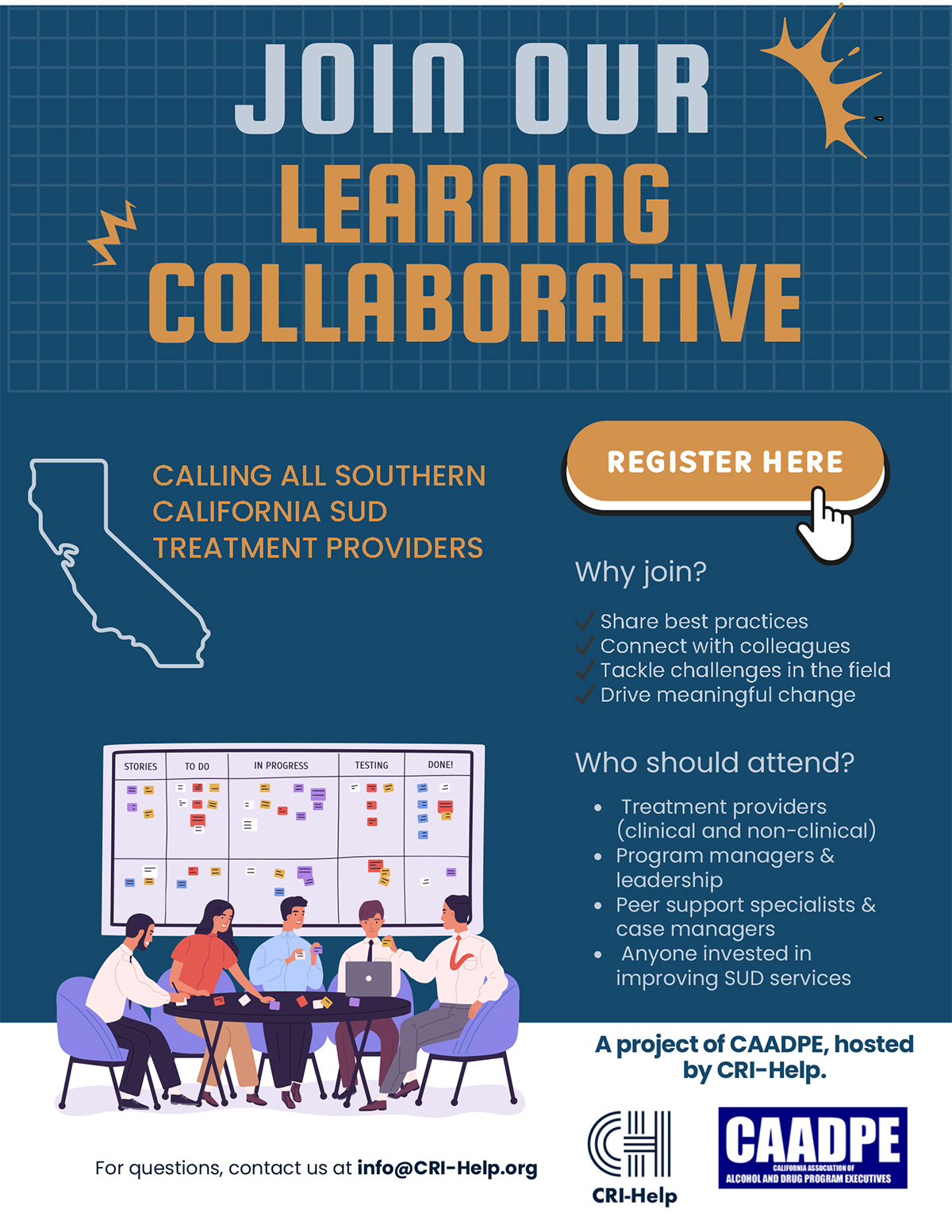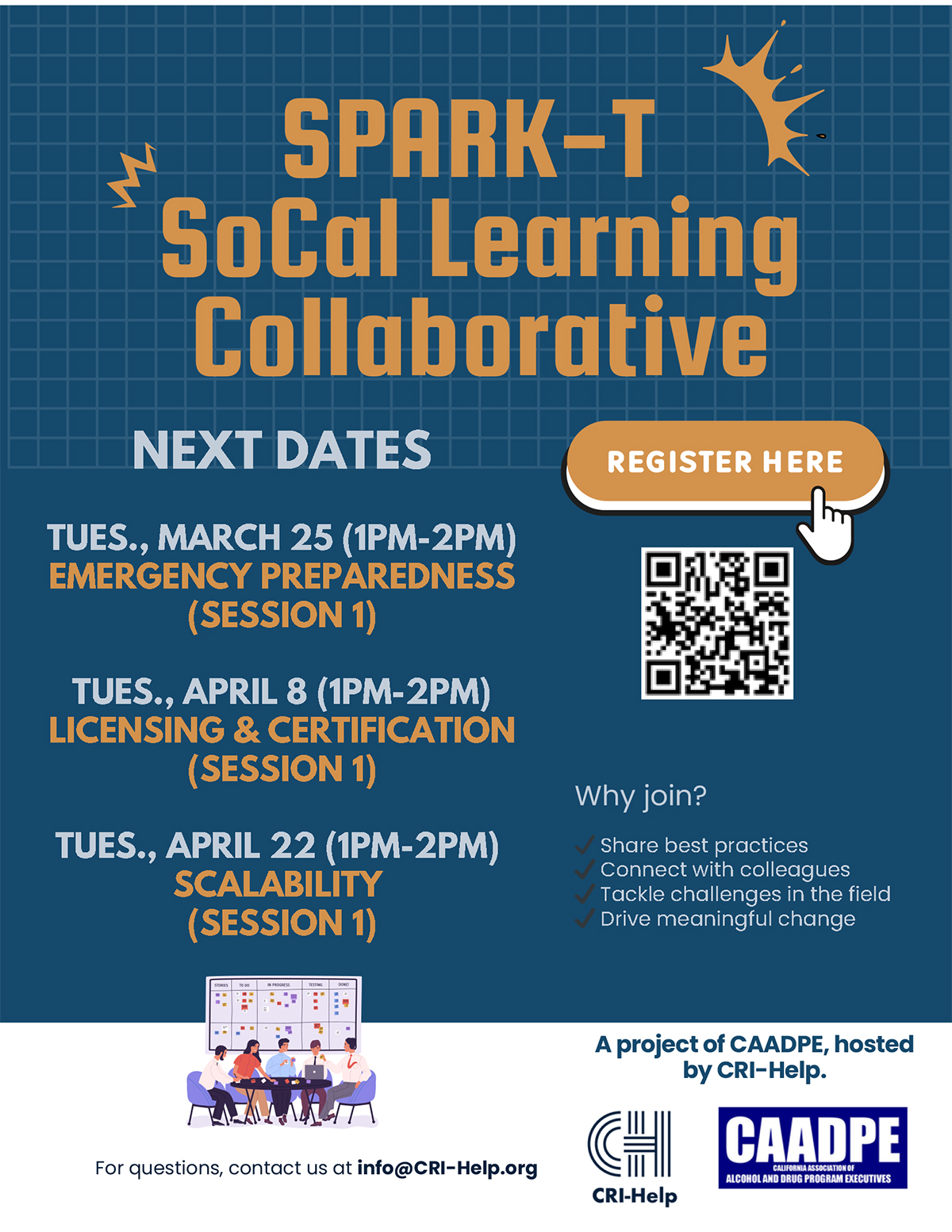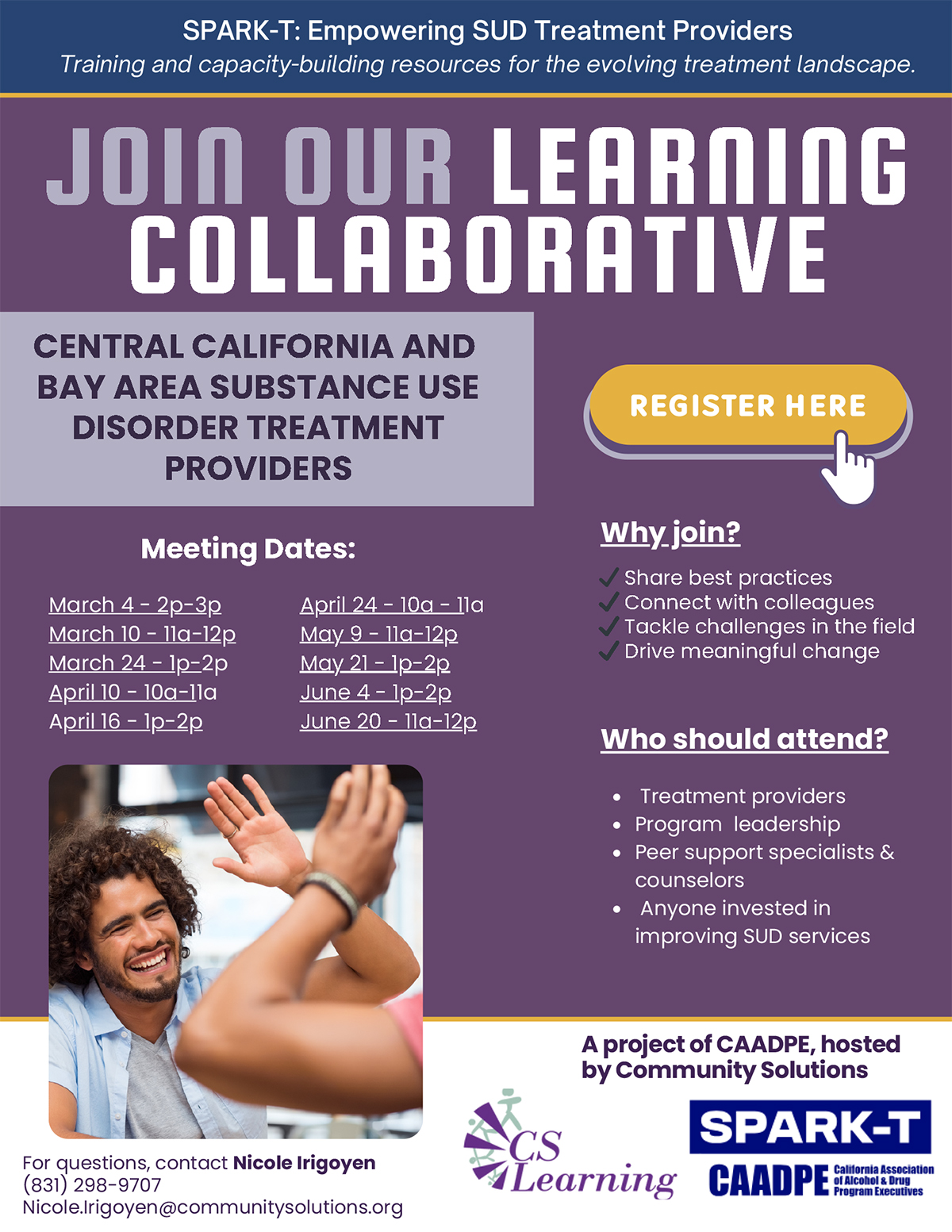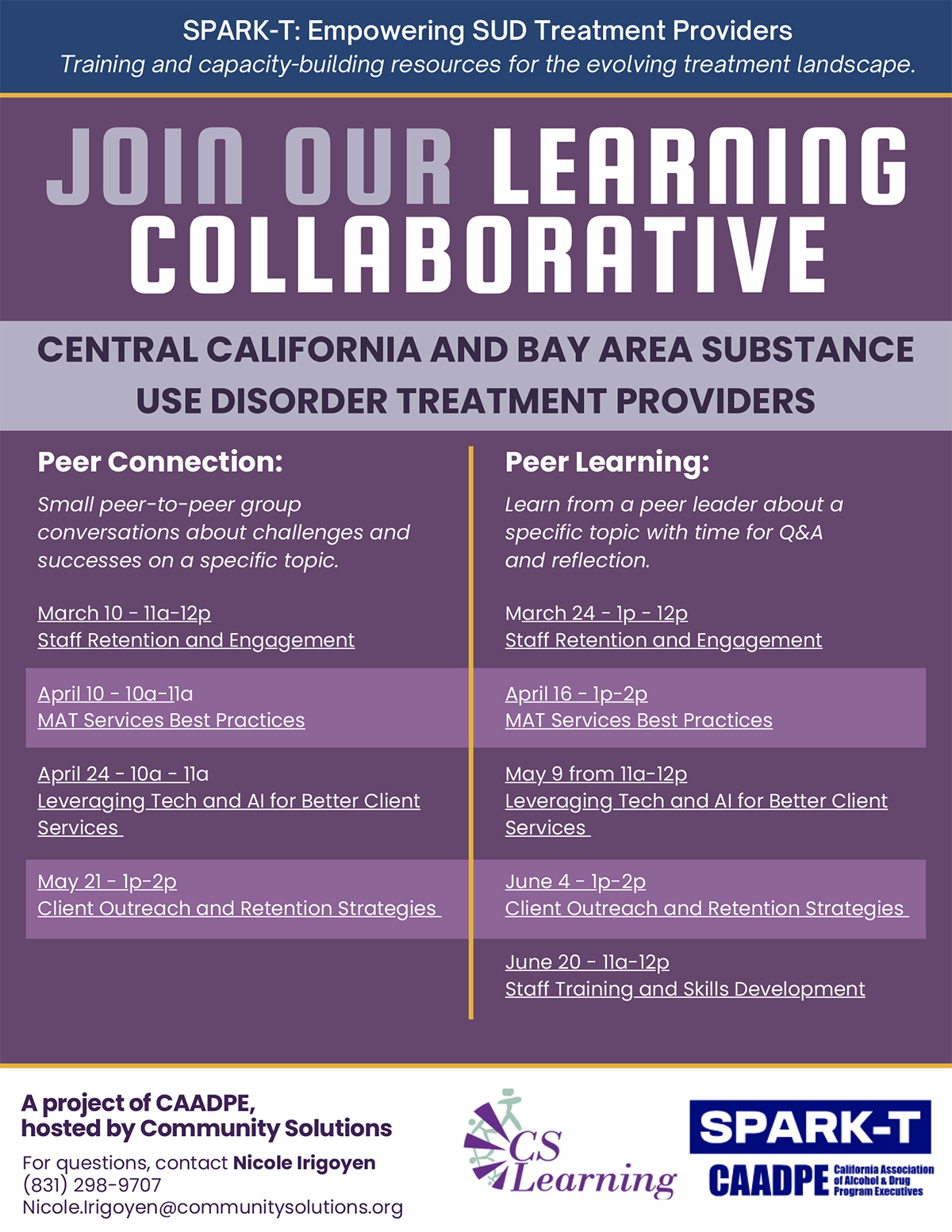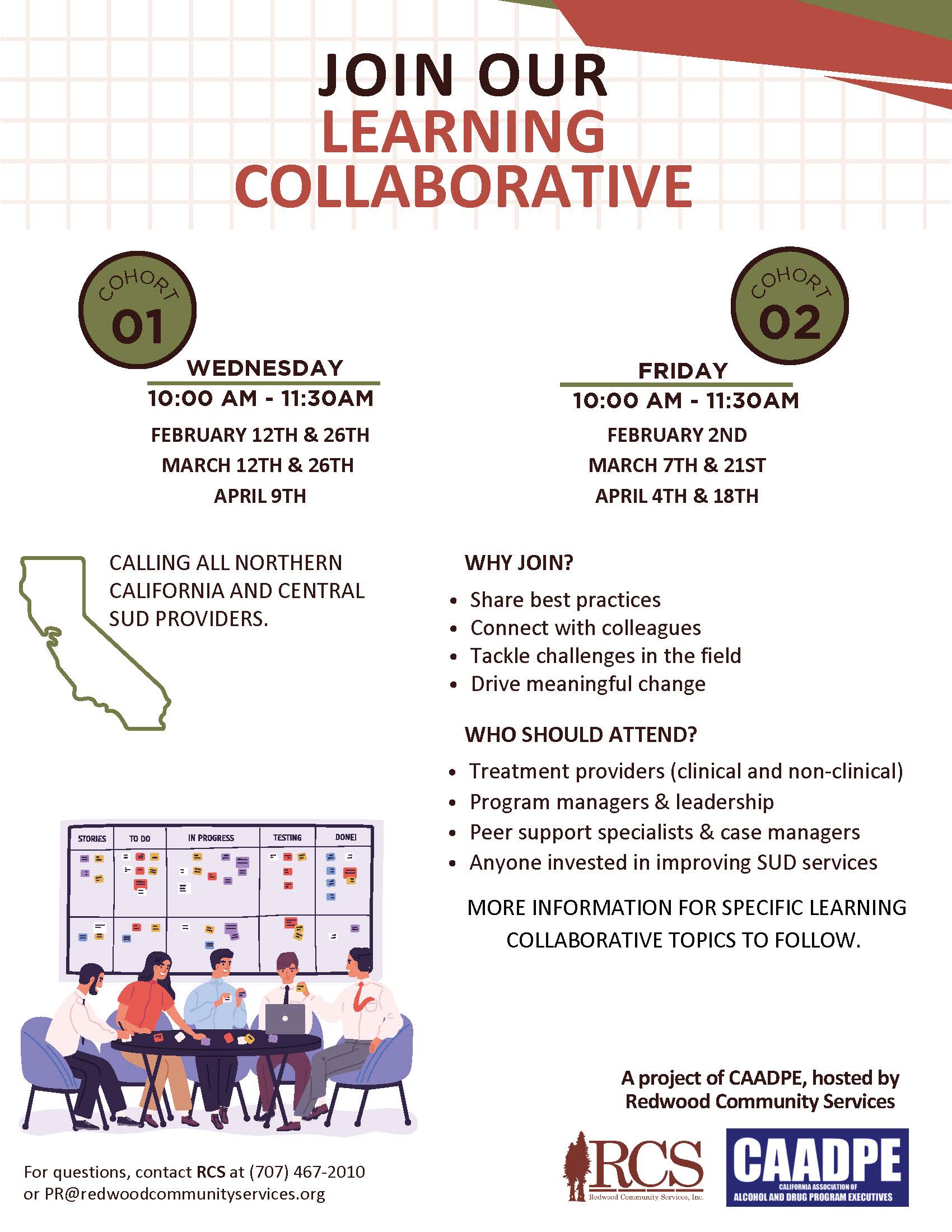The SPARK-T Learning Collaboratives—organized by region (Southern California, Bay Area & Central California, and Northern California)—were created to bring SUD treatment providers together across geographic and organizational boundaries. Through shared learning, resource exchange, and peer connection, participants work collectively to strengthen the quality, accessibility, and sustainability of SUD services throughout the state. Open to program leadership, peer specialists, counselors, and anyone else committed to improving care, the collaboratives offer space to surface challenges, share strategies, and explore data-informed approaches in a supportive, real-world context.
By fostering ongoing dialogue and collaboration, SPARK-T promotes continuous improvement, capacity-building, and innovation, especially among small to mid-sized providers often operating in isolation or under significant regulatory pressure. While each region has its own rhythm and focus, all three collaboratives are guided by the belief that strong relationships, open knowledge-sharing, and a shared commitment to equity can move the entire system of care forward.
Southern California Learning Collaborative
Summary of Experience
The Southern California Learning Collaborative (SoCal LC) brought together small to mid-sized SUD treatment providers for a series of ten virtual sessions focused on peer connection, shared learning, and problem-solving around key operational and clinical challenges. While the Collaborative faced ongoing challenges in attracting high numbers of participants, those who did attend frequently returned for future sessions and expressed appreciation for the space it provided.
Across the sessions, a core group of engaged participants built familiarity and trust, allowing for honest, productive conversations. Many members shared that they valued the opportunity to meet their counterparts at other agencies. Participants expressed that networking is something they rarely have time or structure to do in their day-to-day work. These connections often extended beyond the sessions, with participants exchanging contact information and continuing conversations offline.
Topics ranged from emergency preparedness and quality management to licensing, intake processes, EHR implementation, and staffing. Certain sessions, particularly those focused on regulatory processes or operational pain points, sparked especially strong discussion. While some sessions leaned more informational and others were more open-ended, the format remained flexible and responsive to participants’ interests and experiences.
Common themes emerged throughout the series, including difficulty navigating complex systems, the strain of limited staffing and funding, and the challenges small agencies face balancing service delivery with compliance and administrative demands. Participants also shared practical strategies and emphasized the value of mentorship and peer learning, especially for newer or smaller organizations.
While building consistent attendance was a challenge, the SoCal LC demonstrated that even small gatherings can create meaningful peer support and knowledge exchange. The sessions fostered a sense of community, and many attendees expressed interest in continuing the Collaborative in the future—particularly through role-specific discussions and mentorship opportunities across agencies.
